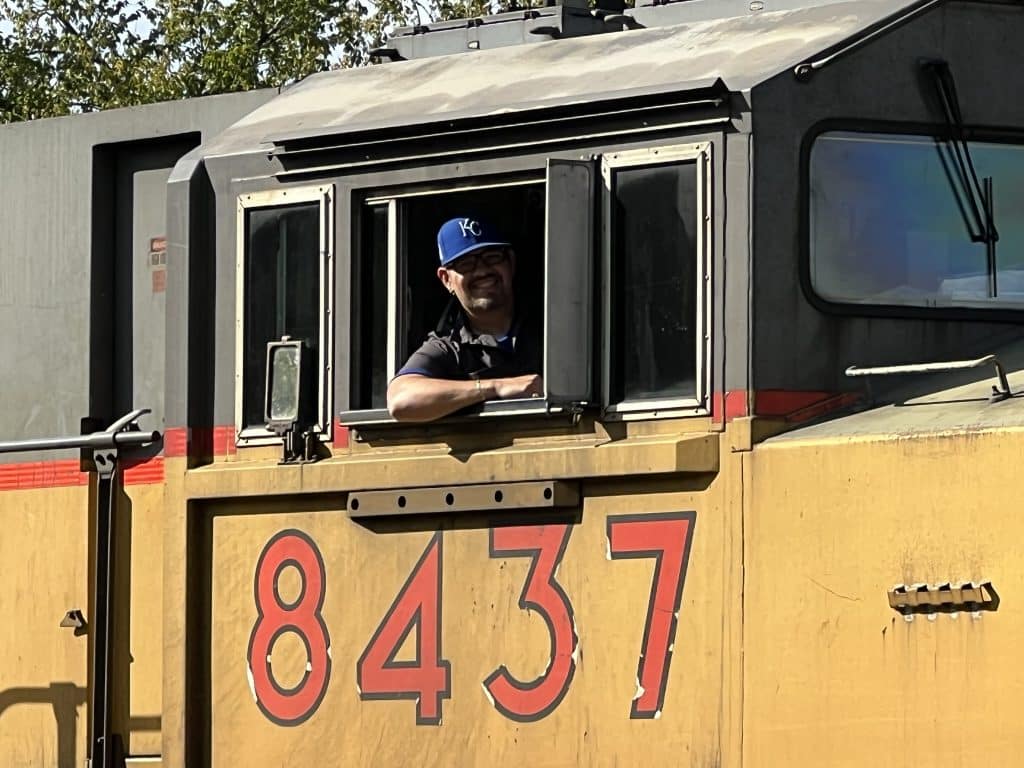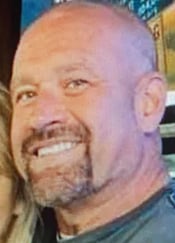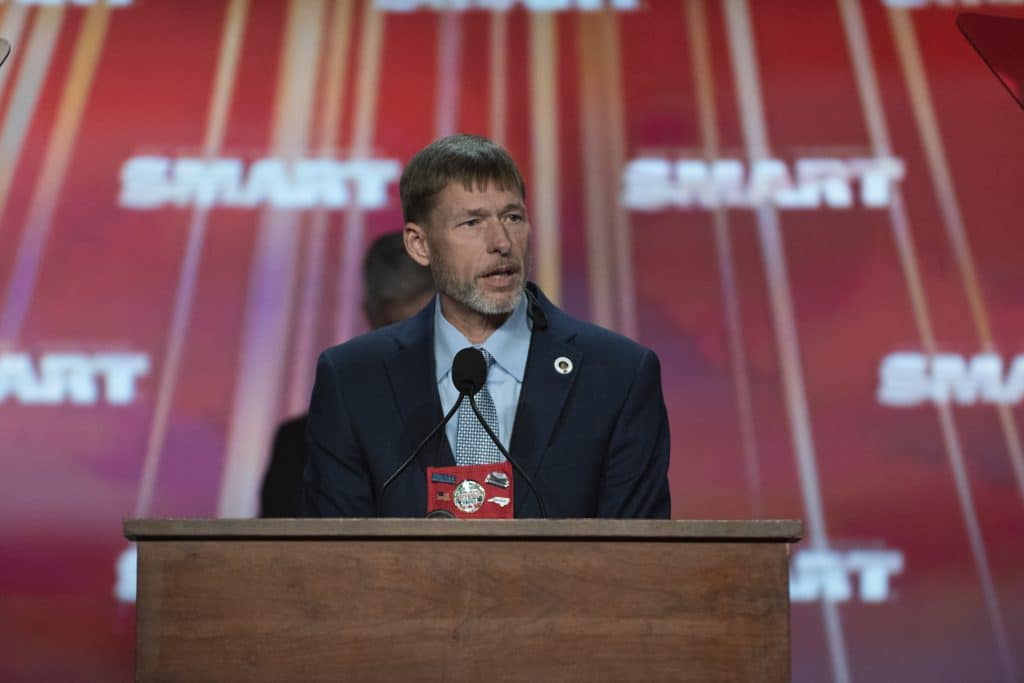The SMART Transportation Division would like to thank all our members who have been filling out the safety forms when PTC doesn’t work as intended, when long trains make handheld radios useless, when signals drop out and when a DP units fail and there’s a mile of cars between the crew and the ability to fix the problem.
All these reports from the ground are the ammo we need as a union to fight the carriers for you.
As railroaders with any time under our belts at all, we know that it is never a good idea to take the railroad you work for at face value when they try to convince you that a proposed change they are is “small” or “won’t have any effect” on you or your co-workers. That skepticism we all have toward the carriers obviously ends up being amplified when 19 railroads come together to request a “minor and insignificant” change to a federal statute on rail safety.
On June 28, that is exactly what happened when 19 railroads, including all six of the Class I freight carriers, submitted a joint request to the Federal Railroad Administration (FRA) asking them to change the definition of the term “initial terminal. (PDF below).
This alliance of would-be competitors rallied together around the cause of changing the official definition, saying that they only wanted to change it in terms of PTC rules. Since you must have a functioning PTC to take the main from an initial terminal, the carriers claimed they were concerned that passenger trains that change directions at the end of the line and go the opposite direction under a new train symbol are getting stranded and unable to move their passengers because of the current definition of “initial terminal” for a new train. They also put forward an example of a coal train in relay service that goes into the coal plant empty under one train symbol and leaves under a new train symbol when loaded. Their argument is that when the train symbol changes, if the PTC doesn’t reinitialize they currently aren’t permitted to take the main and head to the end user. This is because the current definition of that coal plant as the initial terminal of the loaded train under the new symbol means that it was not an en route failure for the second train.
This explanation was difficult to believe for us here at SMART-TD. Relay service on coal trains isn’t where these Fortune 500 companies are making their fortunes, and there is no reason to believe that 19 freight railroads are reaching out because they are concerned for the well-being of Amtrak and the convenience of their ridership.
When this joint request was published, SMART-TD’s National Legislative Department went to work on getting to the bottom of what these companies were trying to accomplish with this seemingly harmless changing of the meaning of a term. What we figured out was just as predictably deceptive as you would expect.
The first way that using their newly minted definition of the initial terminal would benefit them affects the way one railroad interchanges with another company. If the PTC doesn’t load for the new leg of the trip, under the proposed new definition, this second railroad could take off without having PTC available, and they could treat it as an en route failure even though that is a new train on their lines.
The second way it would benefit the company is that under the current PTC rules if a train is rerouted, the PTC information must be updated so the miles on the alternative route are run with PTC. This change in verbiage would have changed that, too. These companies can’t be slowed down by waiting for their own safety-related software to be updated. This proposed change would have been a permission slip for them to send crews on alternate routes into territory they, by definition, are less familiar with, without the safety redundancy of PTC.
In a public comment sent to the FRA on Aug. 8, 2023, by Greg Hynes, SMART-TD’s National Legislative Director, SMART pointed out that the reasons and examples the railroads gave FRA as to why they wanted this change of definition were nonsense. NLD Hynes demonstrated the real incentive for the railroad was the ability to run thousands of rail miles without having to be hampered by federal regulations meant to safeguard our members and the communities we run through.
Hynes went on to describe that, in his career of fighting against railroad companies’ regulatory overreaches, he saw this request as being the first chess move the railroads were using to set up the board for a more-aggressive offensive maneuver on their next turn. He told the FRA that by changing the definition of the initial terminal now only in the context of PTC, it was logical that they would come back to the government later and ask it to change the definition of the initial terminal when it comes to the topic of Class I brake tests. He described in detail that this proposal from the railroads to “make the verbiage consistent and avoid confusion” would have devastating effects on the safety of our nation’s rails.
Last week, on Aug. 14, the FRA made its decision. FRA in its dedication to public safety, and in reference to SMART-TD’s concerns and those of the AFL-CIO’s Transportation Trades Department, officially denied the 19 railroads’ request to change the definition of “initial terminal.” (PDF below).
On paper, this victory looks to be merely the maintaining of the status quo, but it cannot be overstated how big of a victory this was for rail labor and common sense. It is a demonstration that SMART-TD’s National Legislative Office of three people outgunned the legal and lobbying wings of 19 combined railroads. The railroads had a massive manpower advantage, and the majority of their people have law degrees. But what they don’t have is railroad experience and the power of 100,000 men and women behind their words.
We can’t thank you enough for your support.
Please keep these reports coming. And, rest assured, your union will remain in the trenches fighting these carriers every step of the way.



